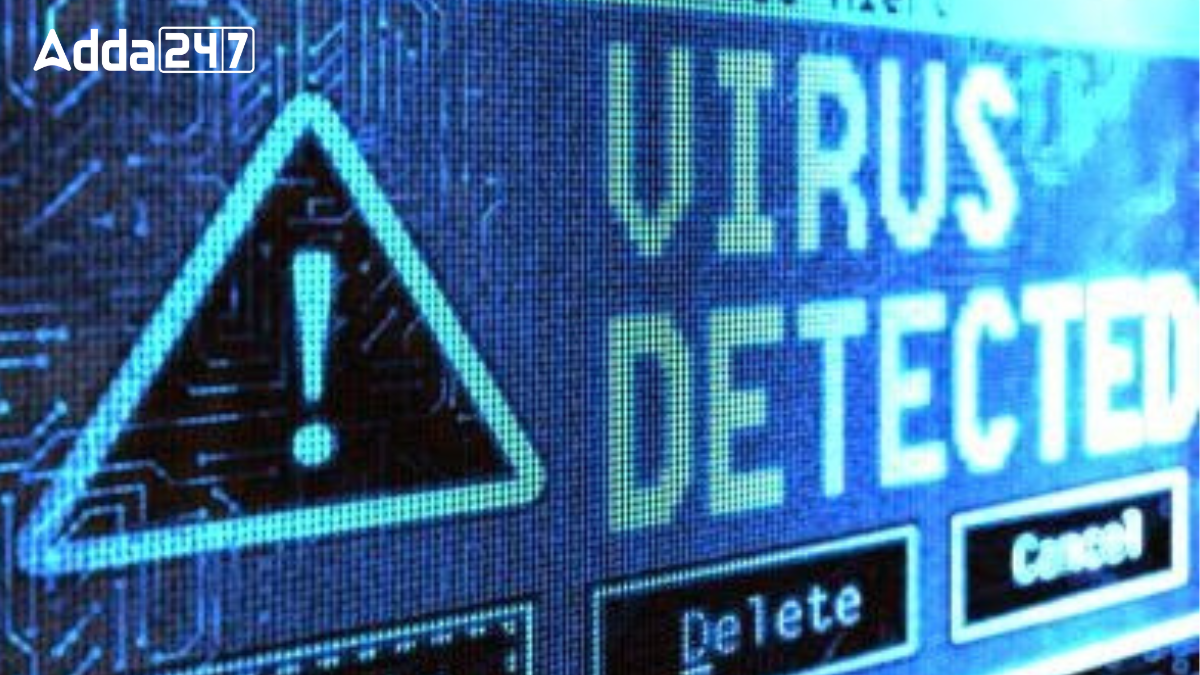The world is advancing digitally with Artificial Intelligence and Cloud Computing transforming daily tasks and increasing reliance on digital data. However, protecting this data from potential threats like malware is essential, giving rise to the field of cybersecurity. This article will break down the concept of viruses, their impact, and how to protect against them.
Full Form of VIRUS
The term “VIRUS” stands for Vital Information Resources Under Seize. In simple words, a computer virus is a harmful program designed to damage or disrupt data. Similar to biological viruses, computer viruses infect their hosts, usually software, and cause harm by spreading to other files or systems. The first computer virus, known as the Creeper Program, appeared in 1971.
Common Signs of a Computer Virus
Viruses often reveal their presence through some noticeable signs. Here are common indicators of a computer virus:
- Pop-up Ads: If your computer shows unwanted ads from unknown sources, it may be infected.
- System Freezes or Crashes: Viruses often damage files, causing the computer to freeze or crash.
- Slow Performance: A virus infection can slow down your computer unexpectedly.
- File Deletion or Modification: Viruses can alter or delete important files.
- Reduced Disk Space: Some viruses fill up the available disk space, impacting storage.
Types of Computer VIRUS
Viruses come in different types, each with its unique way of infecting systems:
- Boot Sector Virus: Infects the boot sector of the computer, causing the virus to load whenever the computer starts up.
- Encrypted Virus: This virus encrypts itself, making it hard to detect until it decrypts for execution.
- Email Virus: Spreads through email attachments or links; once clicked, it infects the system.
- File Infector Virus: Targets executable files and can modify or delete them.
- Polymorphic Virus: Constantly changes its form, making it very hard to detect.
Advantages of Studying Computer Viruses
While viruses cause harm, studying them offers several benefits:
- Finding Security Vulnerabilities: Studying viruses helps identify and fix weaknesses in systems.
- Advancing Cybersecurity Innovation: Threats from viruses drive advancements in antivirus and security software.
- Raising Awareness: People become more cautious about safe internet practices and secure passwords.
- Improving System Resilience: Companies and developers work on creating more secure and resilient systems.
- Testing Network Defenses: Simulated viruses can test an organization’s ability to handle a real attack.
Disadvantages of Computer Viruses
Computer viruses have various negative effects, including:
- Data Loss: They can delete or corrupt important data, leading to significant losses.
- System Slowdown: Viruses consume resources, slowing down computers.
- Financial Costs: Virus infections can cost organizations money due to downtime and recovery.
- Privacy Risks: Some viruses steal personal data, leading to fraud or identity theft.
- Rapid Spread in Networks: Once inside a network, viruses can infect multiple devices quickly.
- Damage to Reputation: Businesses lose customer trust when viruses compromise sensitive data.




 India Beat Pakistan in T20 World Cup 202...
India Beat Pakistan in T20 World Cup 202...
 Weekly One Liners 09th to 15th of Februa...
Weekly One Liners 09th to 15th of Februa...
 Highest Partnerships in India–Pakistan T...
Highest Partnerships in India–Pakistan T...








